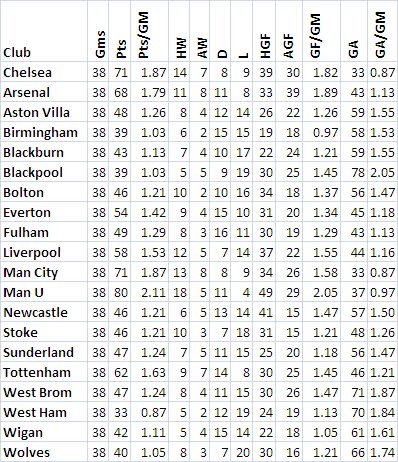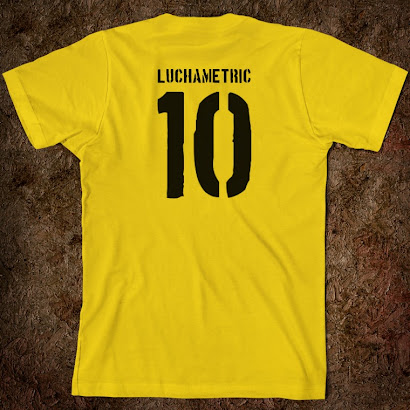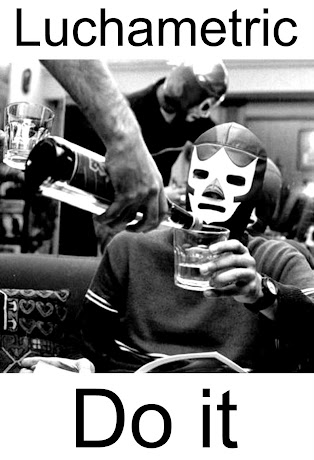The Nordecke Luchador and his associates do not condone illegal activity, but we believe that Major League Soccer will never enjoy the respect and attention of other world football leagues until there is more widespread betting interest in MLS. This will never happen until the monopolistic robber barons who control MLS abandon their childlike obsession with the anti-competitive, indeed, anti-American, single-entity system.
 Ironically, it is the anti-competitive single-entity model that results in a hyper-competitive MLS. And it is this very hyper-competitiveness that is in fact holding the league and American soccer back.
Ironically, it is the anti-competitive single-entity model that results in a hyper-competitive MLS. And it is this very hyper-competitiveness that is in fact holding the league and American soccer back.More than $70 billion per year is wagered in online sports betting alone (not including street bets and legal sports books in places like Las Vegas). The number is projected to reach $100 billion by 2015. By far the most popular sport for gamblers worldwide is soccer, representing by some estimates one-third of the total wagers placed online.
You can place a bet today on who will win the Spanish La Liga title (which will not be decided until May), who will win the World Cup (which doesn't even start until June 11), first-half results for any first division match anywhere this weekend, or even whether Rafa Benitez will be fired from Liverpool (if the Scousers drop out of the top four, he will).
By contrast, there are no lines available today on who will win the 2010 MLS Supporters Shield or the marketing gimmick that is the MLS Cup. Most bookies won't even take bets on the over/under for this week's opening games.
"Well that's just because the MLS sucks," you say. OK, yeah, it's not the EPL. But like most things in life, the answer is not so simple. It is also because the league is too competitive. "Too competitive" you say? How can a league be too competitive? Competitive is good, right?" Not if you are a sports gambler.
As Leandro Faria writes in Simple Soccer, "the smaller the number of big teams within a league, the more predictable it is."
In other words, the more competitive a league is, the more parity; the more parity, the harder it is to make predictions about the outcome of matches. Obviously, betting is nothing other than predicting the outcome of matches. Ergo, betters are interested in leagues that are more predictable, which is the same thing as less competitive -- but not necessarily less interesting or with inferior quality play, as we shall see below. Faria developed a "predictability index" based on actual team parity within leagues as measured by diversity of championships. The top four most predictable (least competitive) first division leagues in the world are in: 1) Scotland, 2) Netherlands, 3) Portugal and 4) Turkey.
The least predictable(most competitive) first division soccer leagues in the world, according to Faria? Brazil and U.S. Major League Soccer.
The numbers clearly back this up. Last year the Columbus Crew won the Supporters Shield with 49 points. Of the other 14 teams in MLS, 12 were within 9 points of the Crew. Contrast that with the rest of the world. In EPL right now 56 points separates Manchester United from last place Portsmouth (nine of those are a result of the penalty Pompey suffered as a result of going bankrupt, but still). In the Italian Serie A,there are 39 points between No. 1 Inter and last place Livorno. In Der Bundesliga it's 38. In La Liga it's 52.
Now, predictable is a relative thing. Any team in any first division soccer league anywhere in the world can beat any other team in that league, as they say, on "any given Sunday" (or Saturday). So it's not as though less-competitive leagues are boring.The leagues that are actually more fun to watch are those that (perhaps counter-intuitively) are a little less competitive and thus have less parity.
(Two other factors also are at play here and are tragically missing from MLS: relegation and a single table, but we will deal with these in a subsequent article).
The MLS league bosses are applying a simplistic, American (in the pejorative sense) paradigm and business model to the league. Their thinking is that by maintaining strict parity, there is more likely to be more widespread interest in more teams, deeper into the season, and that this will maximize revenue (which is all they care about). In fact, if they would allow for clubs to develop true competitive advantages with perhaps only a few teams each season vying for the top, there would be less parity, more excitement, more betting interest (not just in the U.S. but worldwide) and ultimately more revenue.
Whether you happen to be among those who love or hate (it's one or the other) the Yankees, Manchester United, Dallas Cowboys (of the '70s and '80s) or the Chicago Bulls, dynasties are a critical part of generating excitement in any sports league. Fans love narratives about underdogs and champions and the inevitable falls from grace that occur each season. There will be no dynasties and no such story lines in the MLS until there is less parity--less vanilla and more funk, anger, despair and agony.
The Players Union's success in negotiating a new collective bargaining agreement is a major step forward in breaking down the owners' monopolistic scheme. Most fundamentally, it is a victory for the working man and for economic justice. But it also moves the MLS toward less parity, which in the long run does more than anything to support the long-term viability of the league by making it more interesting and more viable for the $70 billion sports betting market.
So, this brings us the mission statement part of this post. As El Luchador and El Chupa travel the world, from Cuba to Caracas, from LA to C-Bus, we are often asked, "Why do you do it? Why do you work so tirelessly, risking the wrath of Don Garber and his minions on the Dark Side of the Force?" Here's the answer:
Luchametric.com has two purposes. 1) Speaking truth to power, fighting the populist soccer revolution in the United States by taking it to the streets. 2) Supporting American soccer by supporting worldwide interest in placing wagers on U.S. soccer.
Do it.
Luchametric.com has two purposes. 1) Speaking truth to power, fighting the populist soccer revolution in the United States by taking it to the streets. 2) Supporting American soccer by supporting worldwide interest in placing wagers on U.S. soccer.
Do it.









 The Luchametric is a
The Luchametric is a 


















3 comments:
You do know that without Single Entity Columbus would not have a team and Toronto would have 2 right?
Shawn, people say that and it may or may not be true. But assuming for the sake of discussion that it is true, it doesn't detract from my point because I am saying that while single-entity may have been necessary to get established, 15 years in, it is an impediment to further progress. Thanks for the comments, brother.
I always liked the news on such a topic and I always followed them, and always interesting articles are exciting, therefore I read gambling news https://jennycasino.com/ UK and play slots and games of popular online casinos.
Post a Comment